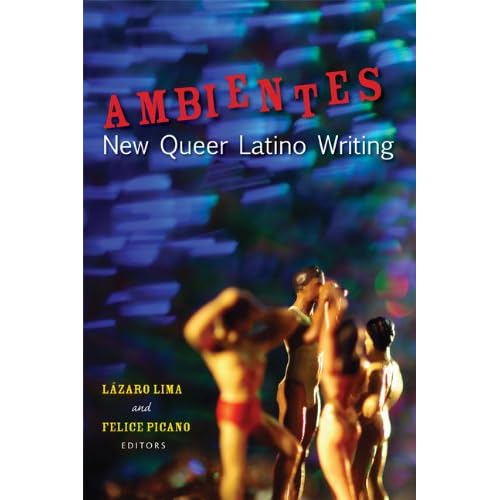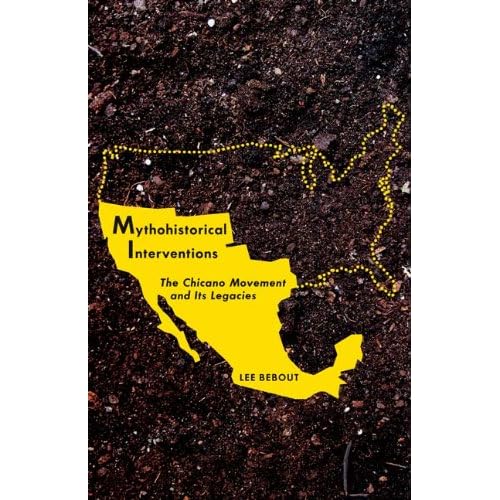New Acquisitions for April and May 2011
Share
With a preface by Picano and an introduction by Lima that sets the stage for understanding Latino literary and cultural history, this is the first anthology to cross cultural and regional borders by offering a wide variety of urban, rural, East Coast, West Coast, and midwestern perspectives on Latina and Latino queers from different walks of life.
Examining the deployment of the Aztec eagle by the United Farm Workers union, the poem Yo Soy Joaquín, the document El Plan de Santa Barbara, and icons like La Malinche and La Virgen de Guadalupe, Bebout reveals the centrality of culture to the Chicano movement. For Bebout, the active implementation of cultural narrative was strategically significant in several ways. First, it allowed disparate movement participants to imagine themselves as part of a national, and nationalist, community of resistance. Second, Chicano use of these narratives contested the images that fostered Anglo-American hegemony.
Bringing his analysis up to the present, Bebout delineates how demographic changes have, on the one hand, encouraged the possibility of a panethnic Latino community, while, on the other hand, anti-Mexican nativists attempt to resurrect Chicano myths as a foil to restrict immigration from Mexico.
Share
Ambientes: New Queer Latino Writing
Paperback University of Wisconsin Press; 1 edition (May 27, 2011)
ISBN-10: 0299282244 ISBN-13: 978-0299282240
Lazaro Lima (Editor), Felice Picano (Editor)
As the U.S. Latino population grows rapidly, and as the LGBTQ Latino community becomes more visible and a more crucial part of our literary and artistic heritage, there is an increasing demand for literature that successfully highlights these diverse lives.
Edited by Lázaro Lima and Felice Picano, Ambientes is a revolutionary collection of fiction featuring stories by established authors as well as emerging voices that present a collective portrait of gay, lesbian, bisexual, and transgender experience in America today.
With a preface by Picano and an introduction by Lima that sets the stage for understanding Latino literary and cultural history, this is the first anthology to cross cultural and regional borders by offering a wide variety of urban, rural, East Coast, West Coast, and midwestern perspectives on Latina and Latino queers from different walks of life.
Stories range from sensual pieces to comical romances and from inner-city dramas fueled by street language to portraits of gay domesticity, making this a much-needed collection for many different kinds of readers. The stories in this collection reflect a vibrant and creative community and redefine received notions of “gay” and “lesbian.”
Mythohistorical Interventions: The Chicano Movement and Its Legacies
(Critical American Studies Series)
(Critical American Studies Series)
Paperback Univ Of Minnesota Press (April 6, 2011)
ISBN-10: 0816670870 ISBN-13: 978-0816670871
Mythohistorical Interventions explores how myth and history impacted the social struggle of the Chicano movement and the postmovement years. Drawing on archival materials and political speeches as well as music and protest poetry, Lee Bebout scrutinizes the ideas that emerged from the effort to organize and legitimize the Chicano movement’s aims.
Examining the deployment of the Aztec eagle by the United Farm Workers union, the poem Yo Soy Joaquín, the document El Plan de Santa Barbara, and icons like La Malinche and La Virgen de Guadalupe, Bebout reveals the centrality of culture to the Chicano movement. For Bebout, the active implementation of cultural narrative was strategically significant in several ways. First, it allowed disparate movement participants to imagine themselves as part of a national, and nationalist, community of resistance. Second, Chicano use of these narratives contested the images that fostered Anglo-American hegemony.
Bringing his analysis up to the present, Bebout delineates how demographic changes have, on the one hand, encouraged the possibility of a panethnic Latino community, while, on the other hand, anti-Mexican nativists attempt to resurrect Chicano myths as a foil to restrict immigration from Mexico.
The City I Love
Ranchos Press
Maria Miranda Maloney
"Maria Miranda Maloney's the City I Love is a love song, a lament, a powerful exploration of place and those who inhabit it. El Paso comes alive in all its history and dilema and secrets. Great poets have said that cities are where creative spirits thrive. Maloney gives us her city and through this magnificant poem, allows us to bring it simmering to our hungry lips."
---- Margaret Randel, author of As If the Empty Chair /
Como Si La Silla Vacia and Somethings Wrong With The Cornfields













No comments:
Post a Comment